Where Every 2022 NBA Finals Player Ranks So Far with Analytics
Where Every 2022 NBA Finals Player Ranks So Far with Analytics
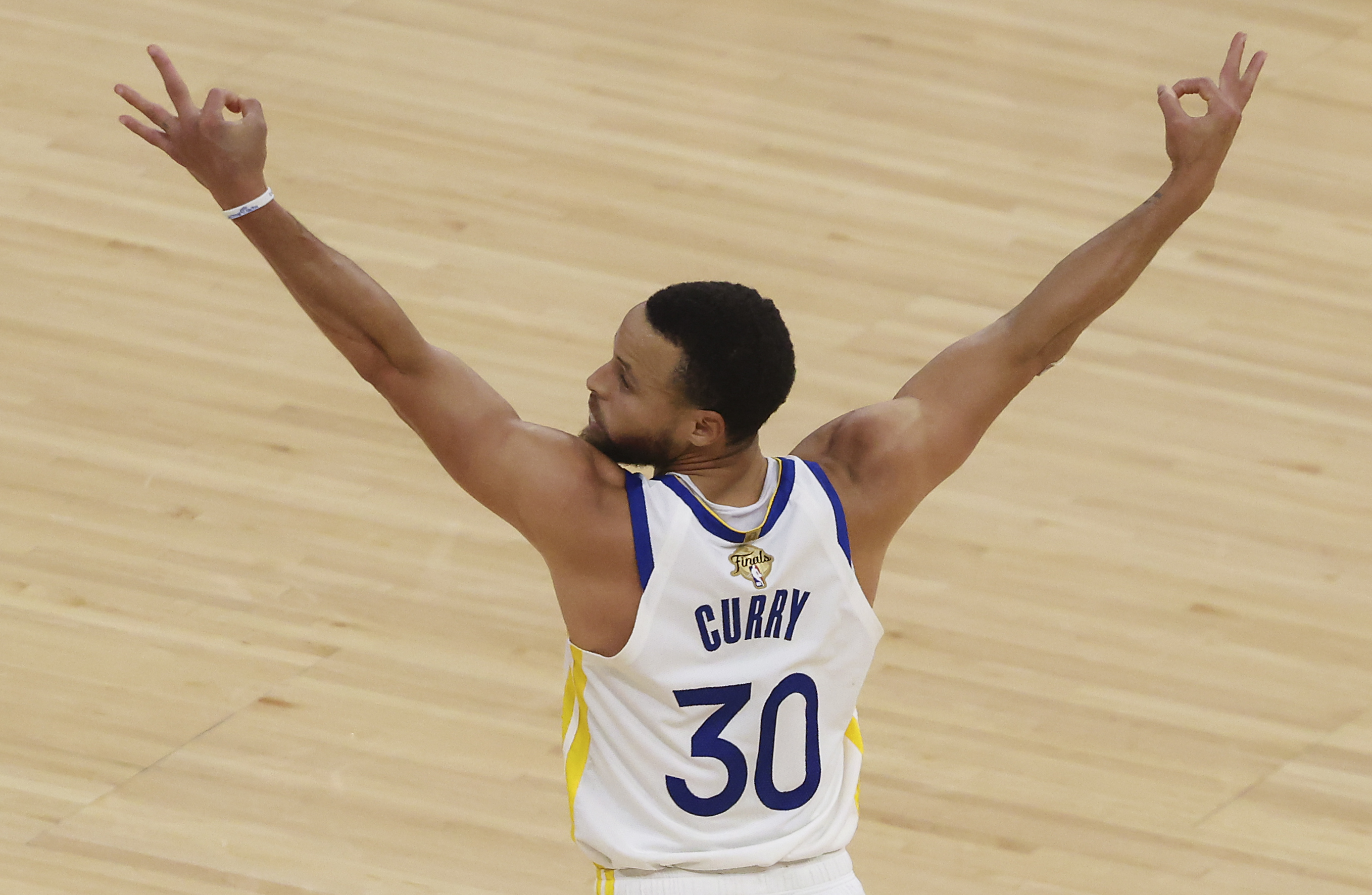
Five games into the 2022 NBA Finals, the Golden State Warriors lead the Boston Celtics 3-2, and arguments about Finals MVP are starting to feel meaningless.
If the Warriors hold on, it's almost impossible to imagine anyone but Stephen Curry securing the honor.
Beyond the absurd basic numbers (30.6 points, 5.0 threes, 4.6 assist, 1.8 steals and a 41.7 three-point percentage), Curry leads all Finals participants with at least 50 minutes in box plus/minus (BPM "...is a basketball box score-based metric that estimates a basketball player’s contribution to the team when that player is on the court") and average game score (GmSc is "...a rough measure of a player's productivity for a single game"). He's third in total raw plus-minus.
No one is close in terms of those advanced numbers either.
To confirm that, we won't bother reciting the mouthful above for every player in this series. Instead, we'll sort everyone who meets that minutes threshold by the average of their ranks in BPM, GmSc and plus-minus per 100 possessions, as well as cumulative variants of each (and with some extra weight given to BPM and GmSc).
The point of using both rate and cumulative numbers (think points per game and total points) is to give credit to those players who've been on the floor the most.
With or without the criteria, the top spot on the list was a gimme. Now it's time to see if the rest of the list passes the eye test.
16. Payton Pritchard
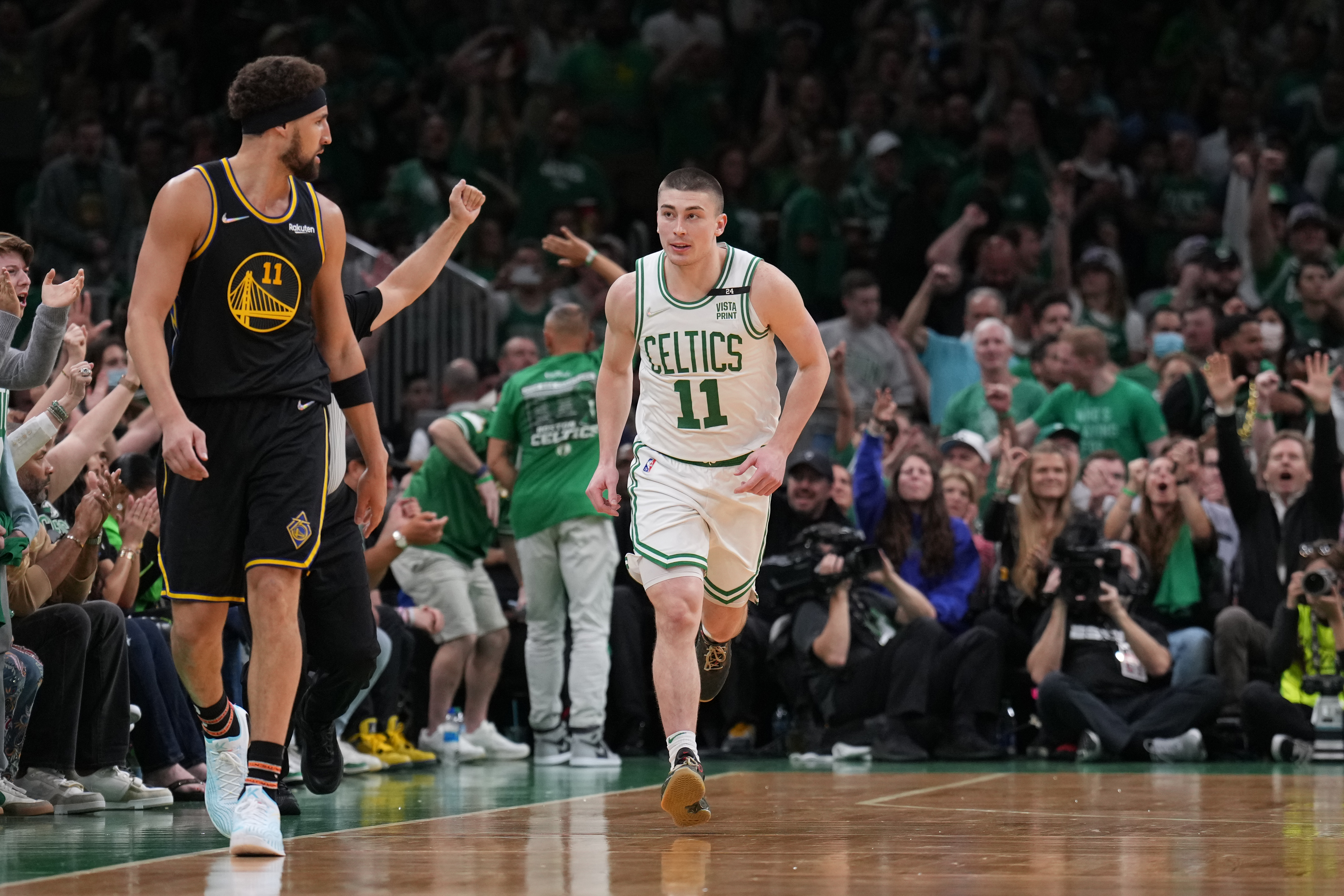
Stats: 3.2 points, 1.0 assists, 33.3 field-goal percentage, 25.0 three-point percentage, -4.8 box plus/minus
It must be tough for a shooter to get any kind of rhythm playing 11.8 minutes per game on the game's biggest stage, and that certainly seems to be affecting Payton Pritchard.
A career 41.2 percent three-point shooter in the regular season, Pritchard just hasn't been able to buy a bucket from the outside. Since the start of Game 5 against the Miami Heat, he's only made 20.0 percent of his threes.
But on top of that, Pritchard has been prone to some mental lapses against Golden State. He only has one more assist than he does turnovers, and he caught the ball out of bounds immediately after coming into the game for a possession in Game 5.
All of that in combination with Golden State targeting his defense when he's on the floor makes it difficult for Ime Udoka to play him much.
15. Grant Williams
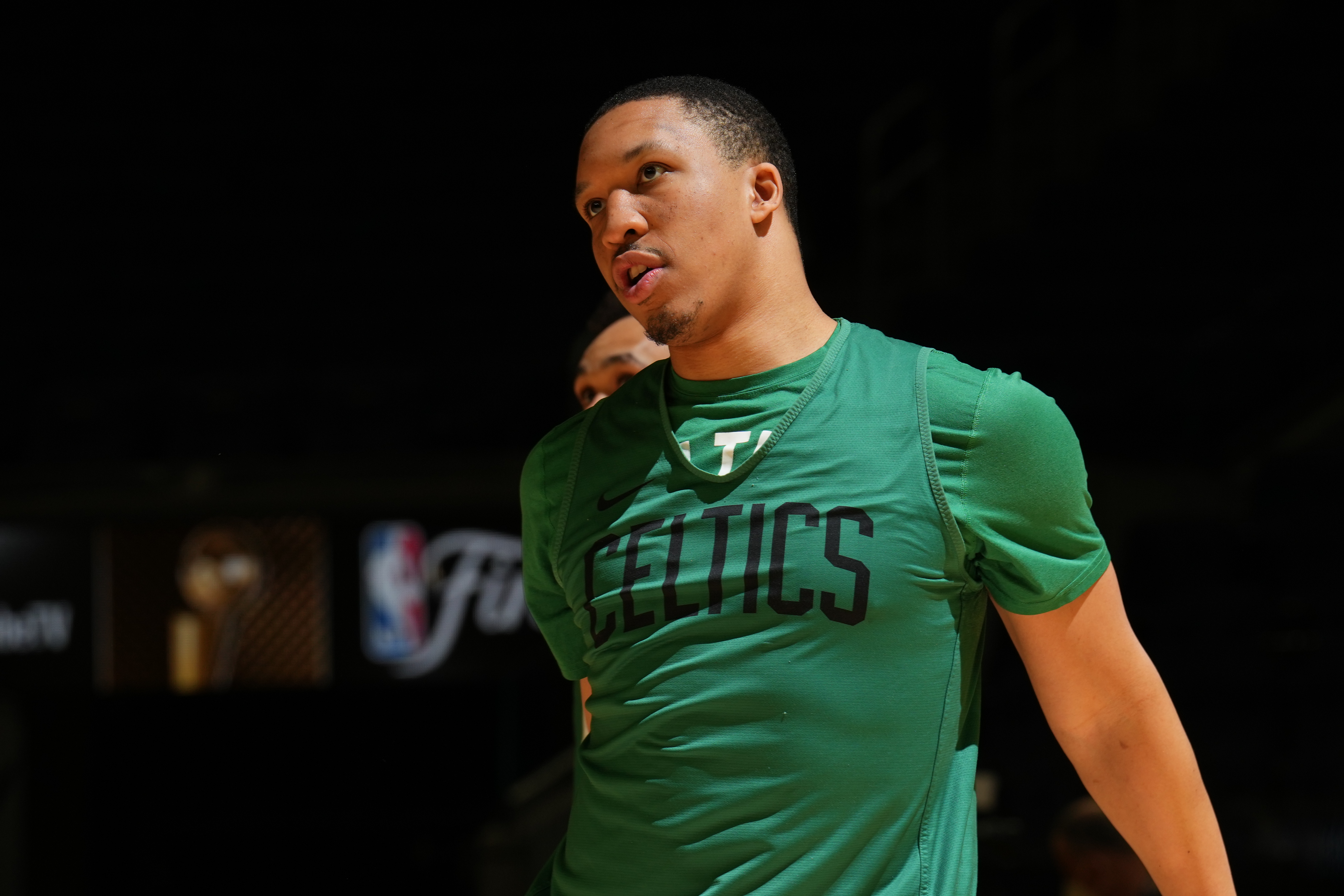
Stats: 4.4 points, 2.6 rebounds, 0.6 threes, 33.3 three-point percentage, -0.5 box plus/minus
Grant Williams was an X-factor against the Milwaukee Bucks and for the first few games of the Eastern Conference Finals, but his production has gone AWOL against the Warriors.
And unlike Pritchard (who's somehow plus-22 for the series), the Celtics are getting walloped in Williams' minutes. No one in the exercise has a worse raw plus-minus or net rating.
Beyond seemingly losing his touch from three, those losing minutes may be the result of Williams' tweener status finally catching up to him.
Right now, he looks a half-step slow against forwards like Draymond Green and Otto Porter, and he's simply not big enough for a center like Kevon Looney.
14. Draymond Green
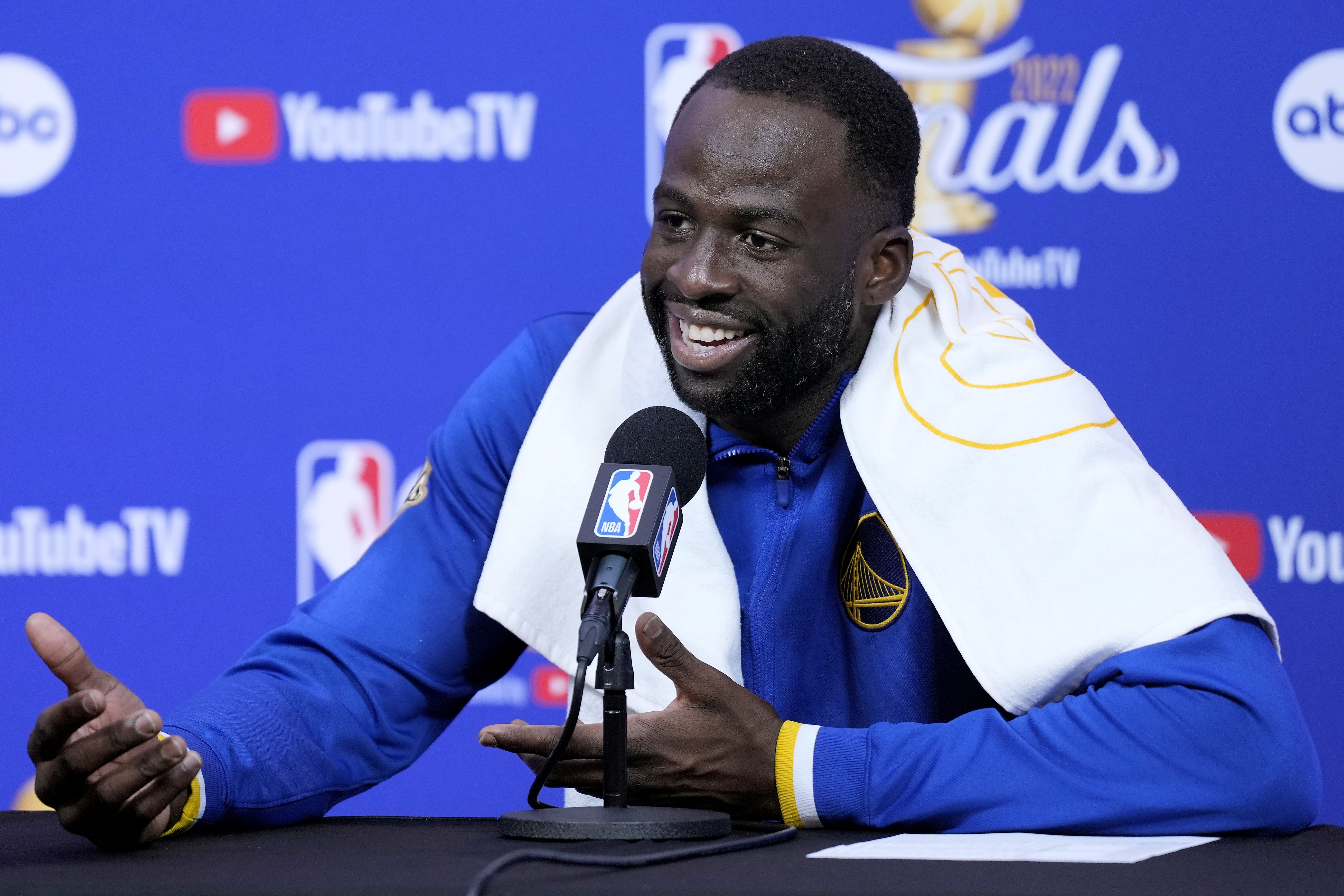
Stats: 7.4 rebounds, 5.8 assists, 5.0 points, 1.6 steals, 28.1 field-goal percentage, 0-of-11 from three, 58.3 free-throw percentage, -3.0 box plus/minus
Draymond Green has had his moments in this series, including a huge offensive rebound in Game 4 and a thunderous drive and dunk in Game 5, but the raw numbers are ugly. And they seem to be getting into his head.
On one possession in Game 5, Green caught the ball under the rim with plenty of time and space to attempt a layup. Instead, in a thoroughly Ben Simmons-ian way, he quickly whipped the ball out to the three-point line without even looking at the hoop.
To secure the series, Golden State may need Draymond to be a bit more aggressive, as he was on the aforementioned drive, when he faked a handoff around the free-throw line and wheeled into the open paint for the jam.
13. Derrick White
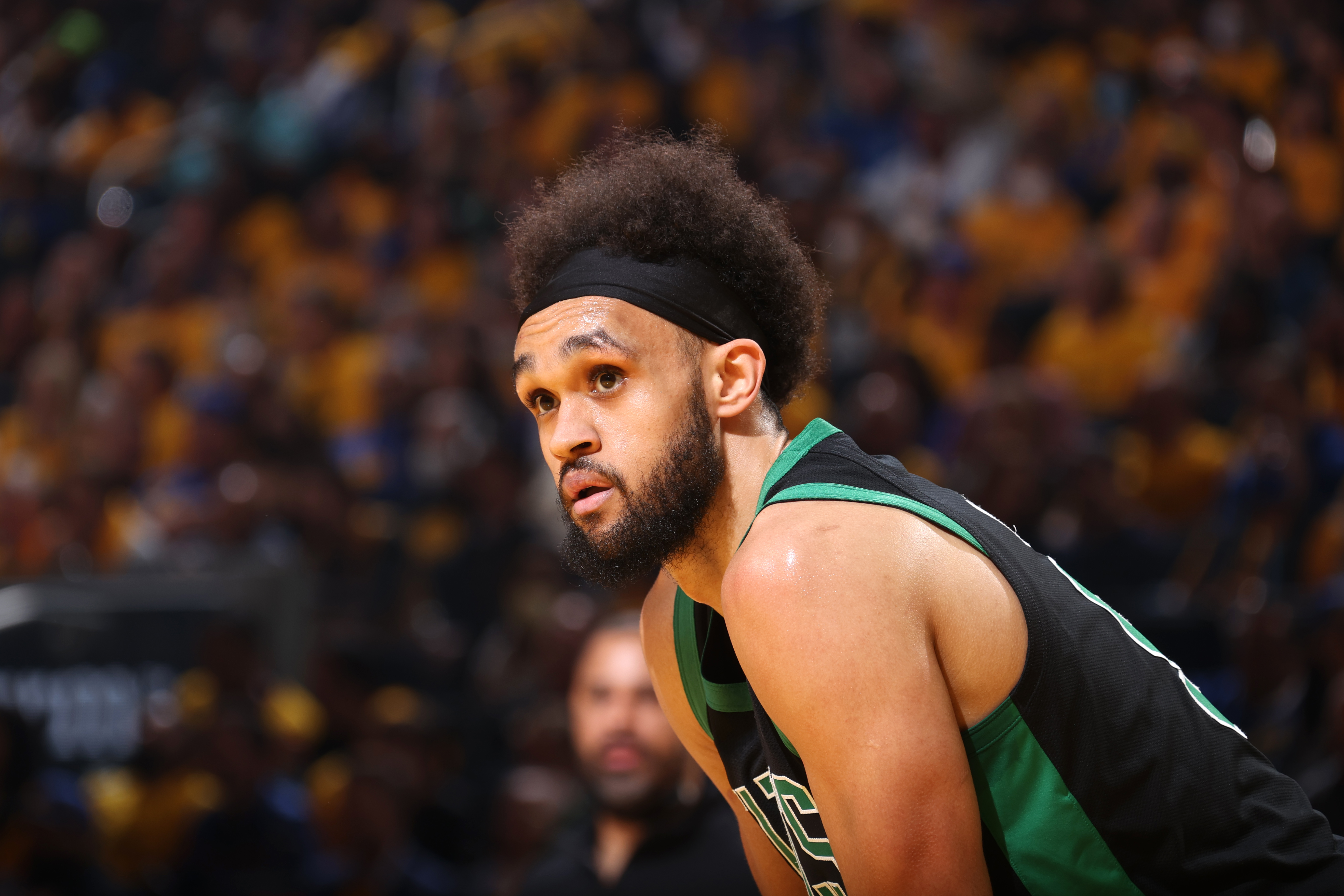
Stats: 11.4 points, 2.2 assists, 2.0 threes, 1.8 turnovers, 34.7 field-goal percentage, 43.5 three-point percentage, -1.7 box plus/minus
Derrick White's impact this postseason has been all over the map. He's had seven games in which he scored three or fewer points and nine in which he hit double-figures. And his performance in the Finals feels like a microcosm of that roller coaster.
In the Game 1 win, he went for 21 points on 6-of-11 shooting. Since then, he's averaged 9.0 points while shooting 28.9 percent from the field.
And while he deserves plenty of credit for Golden State only having 89 points in the roughly 98 possessions in which he's spent some time on Curry, he's also allowed him to shoot 16-of-31 from the field and 7-of-16 from three.
Now, Curry has made plenty of defenders look bad over the years, but success for a defensive specialist often depends on holding the superstar to some level below his career norms.
12. Jordan Poole
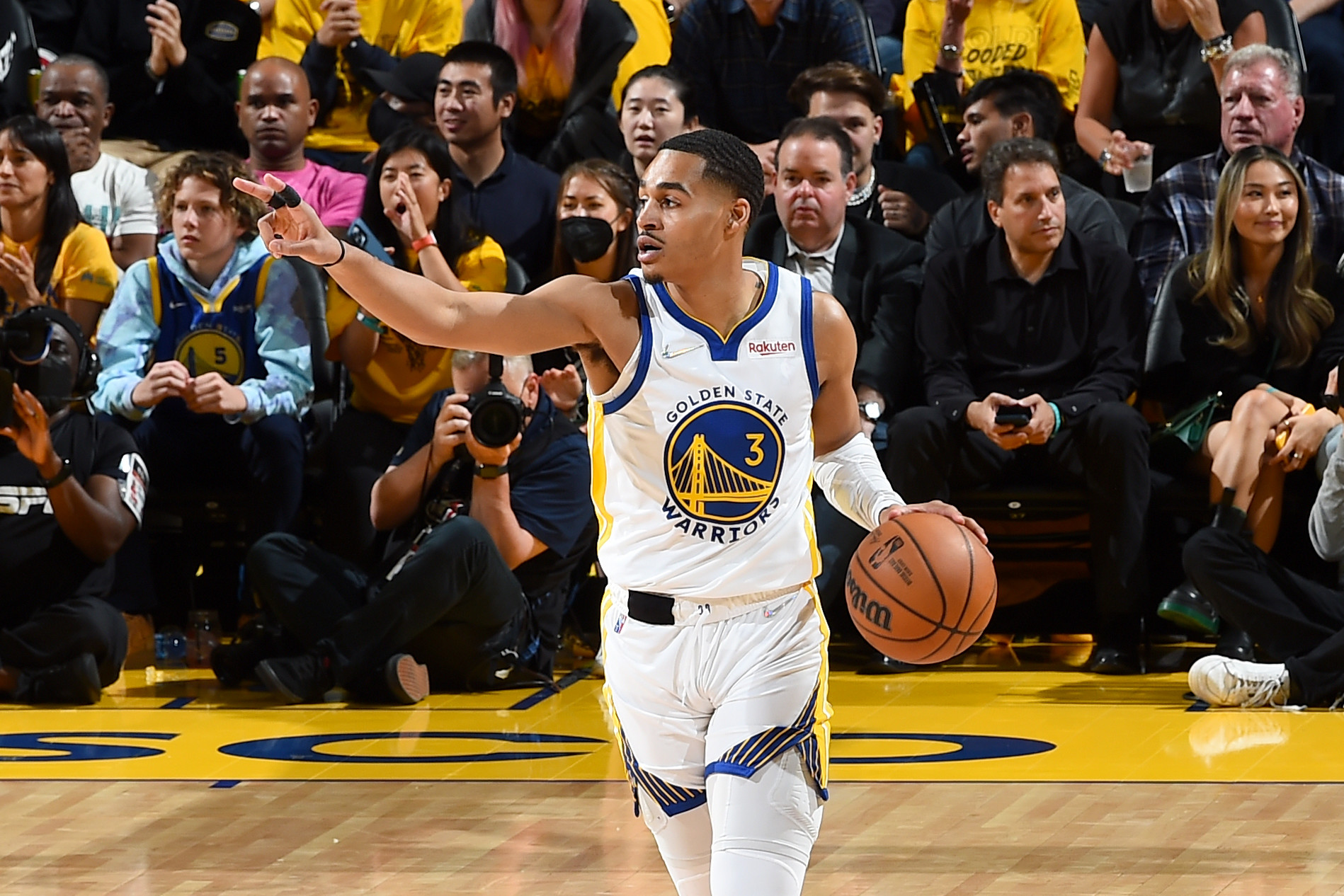
Stats: 12.8 points, 2.4 threes, 2.4 turnovers, 1.8 assists, 44.0 field-goal percentage, 38.7 three-point percentage, -0.6 box plus/minus
Jordan Poole has had his moments in this series, but none were bigger than a buzzer-beating three to end the third quarter of Game 5.
Boston had erased a 12-point halftime deficit with a flurry of outside shooting and led by as much as five in the period, but Poole's heroics (he'd hit another three just over a minute earlier) snuffed out whatever momentum the Celtics had.
For the game, Poole had 14 points in 14 minutes, zero rebounds, zero assists and zero steals. And he was exactly what the Warriors needed in that moment.
Boston has been able to attack his defense throughout the Finals, and the lack of ancillary contributions can sometimes be a problem, but a spark here or there can change the course of a game.
11. Marcus Smart
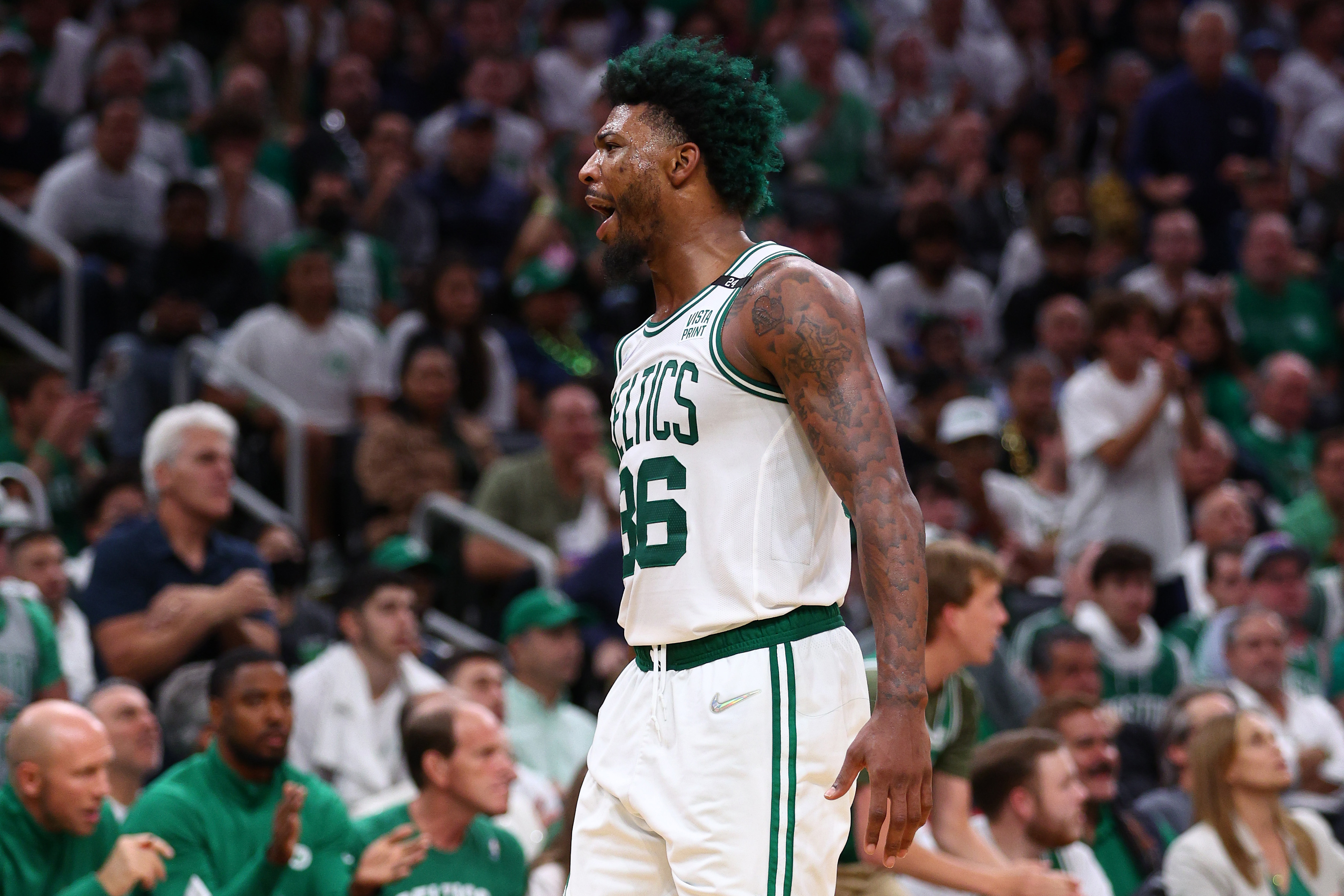
Stats: 16.4 points, 4.2 rebounds, 4.2 assists, 3.2 turnovers, 2.6 threes, 1.4 steals, 44.8 field-goal percentage, 40.6 three-point percentage, -0.1 box plus/minus
We've already reached a point on this list where no one left has really been bad. And in Marcus Smart's case, it feels like the advanced numbers may be underrating his impact a bit.
In addition to timely and accurate three-point shooting, Smart has been one of the Celtics best options against Curry. In Game 5 alone, Curry managed just four points on 1-of-5 shooting when defended by Smart. For the series, he's held him to 6-of-20 shooting (meaning Curry is an even 50.0 percent against everyone else).
What may be holding Smart back (in addition to raw numbers that aren't quite on par with several of the players in front of him) is the fact that Boston is thoroughly losing the minutes when he's in the game.
10. Otto Porter Jr.
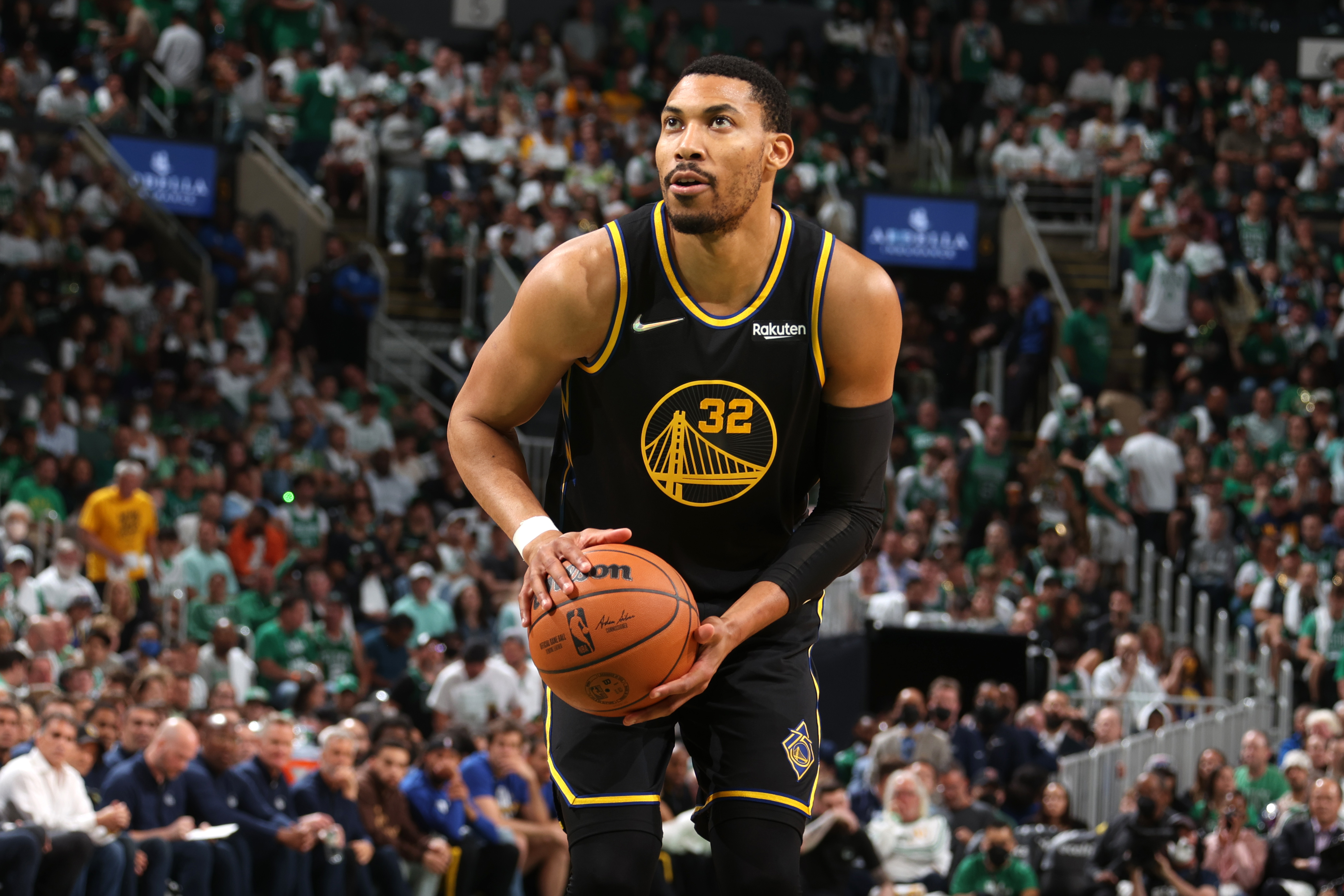
Stats: 5.0 points, 2.2 rebounds, 1.4 threes, 1.2 assists, 1.2 steals, 57.1 field-goal percentage, 53.8 three-point percentage, 7.1 box plus/minus
This might be our first big disagreement between the numbers involved here and a more old-school approach to ranking the players in this series.
Otto Porter is only playing 17.8 minutes per game, and he's not being asked to do a ton when he's in the game.
But Golden State is comfortably winning his stints, and there's value in having someone on the floor who'll do a lot of little stuff without needing to use a bunch of possessions.
9. Gary Payton II
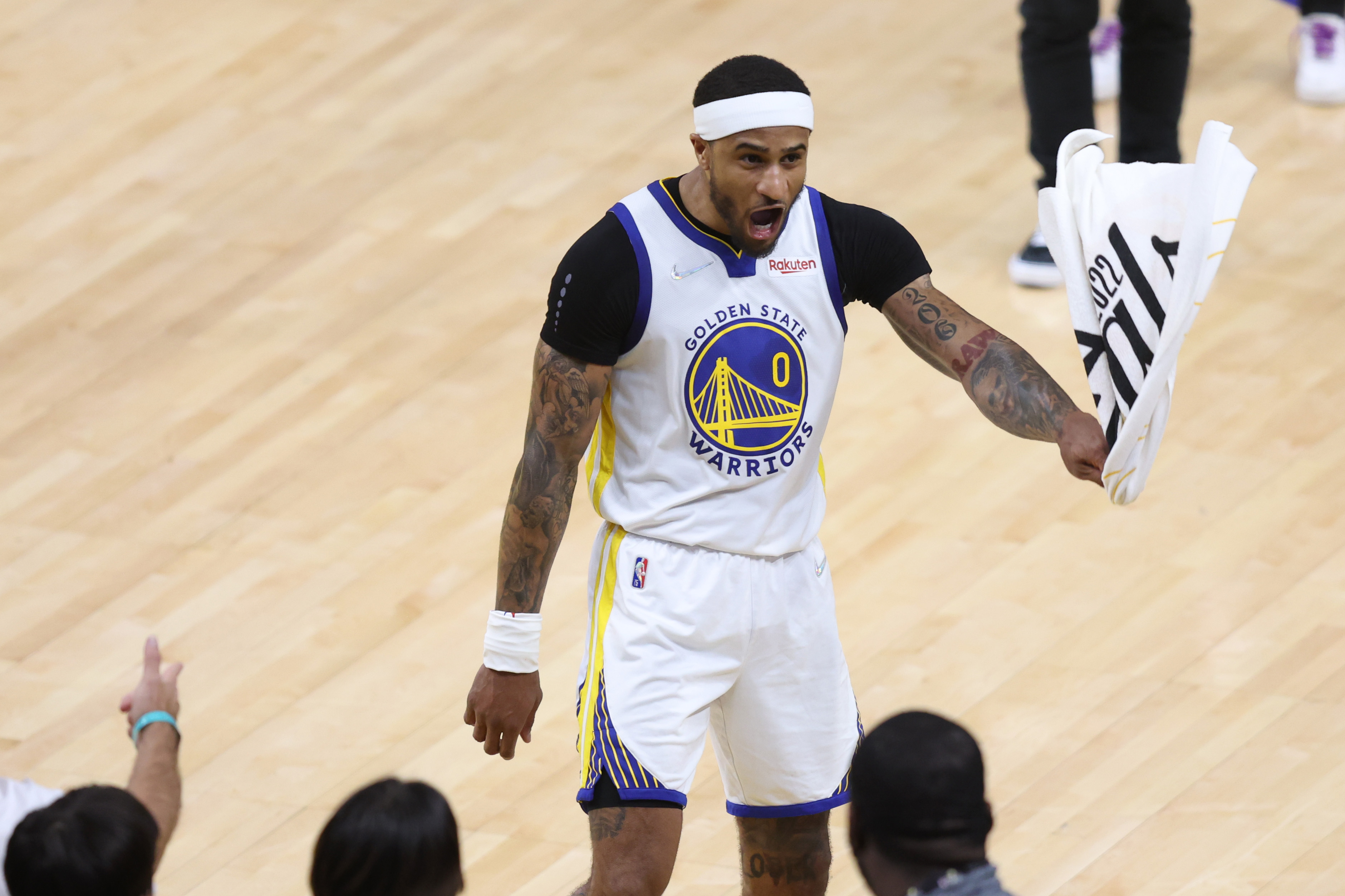
Stats: 7.3 points, 3.3 rebounds, 1.3 assists, 1.3 steals, 68.8 field-goal percentage, 7.9 box plus/minus
Adding Gary Payton II back into the mix was a very real game-changer for the Warriors (he was available for Game 1 after suffering a broken elbow but didn't get back onto the floor till Game 2).
Like Porter, Payton's basic numbers certainly don't leap off the screen, but his game sure does.
Against Boston's largely positionless lineups, Payton can be trusted to guard three or four positions (and guard them well). And he has a knack for knowing exactly when to cut to the basket and create assist opportunities for his teammates.
🏆 15 PTS - 5 REB - 6/8 FG 🏆#GLeagueAlum Gary Payton II SHOWED OUT in Game 5 of the #NBAFinals presented by YouTube TV. He led all reserves in scoring and posted a +16, the highest of any player. pic.twitter.com/uRazkxpD7K
— NBA G League (@nbagleague) June 14, 2022
Outside of the stars involved, no one infuses his team with quite the same kind of energy on both ends of the floor as Payton.
8. Jaylen Brown
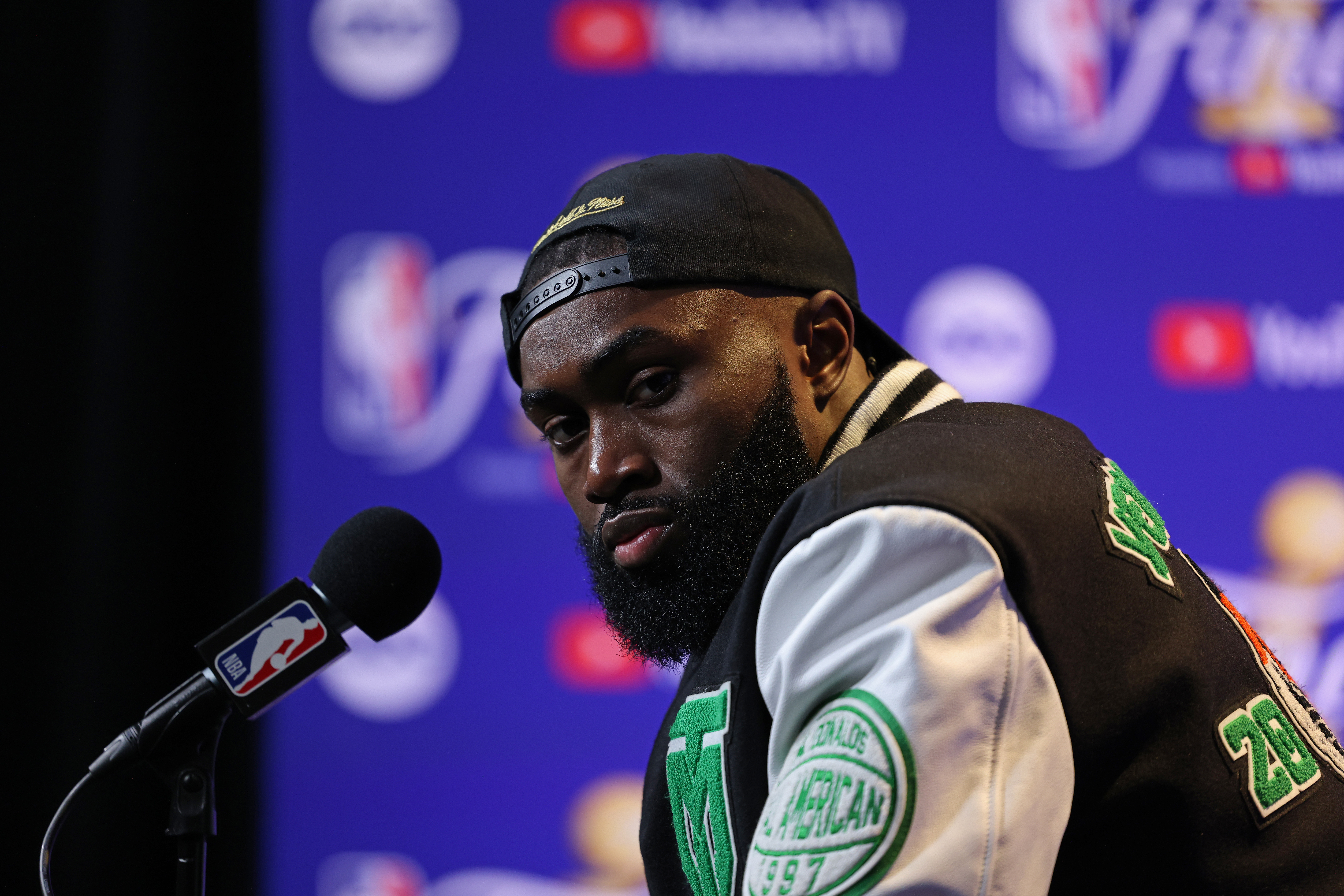
Stats: 21.4 points, 7.4 rebounds, 3.8 assists, 3.0 turnovers, 2.2 threes, 40.9 field-goal percentage, 30.6 three-point percentage, 0.2 box plus/minus
Jaylen Brown's efficiency has fallen off a cliff since the Eastern Conference Finals (when he averaged 24.1 points and shot 40.4 percent from three), and the turnovers remain a problem too.
But he's had some force-of-will scoring stretches that are a big part of why Boston has two wins and kept Games 4 and 5 competitive.
For the rest of the series, his impact will depend a lot on how well he can take care of the ball and hit the open looks created for him. And that may mean finding a happy place between being aggressive and letting the game come to him.
When Brown gets overzealous in isolation or pick-and-roll, his dribble can get precarious. When he's attacking closeouts against a disadvantaged or rotating defense, it's the other team that's usually in trouble.
7. Al Horford
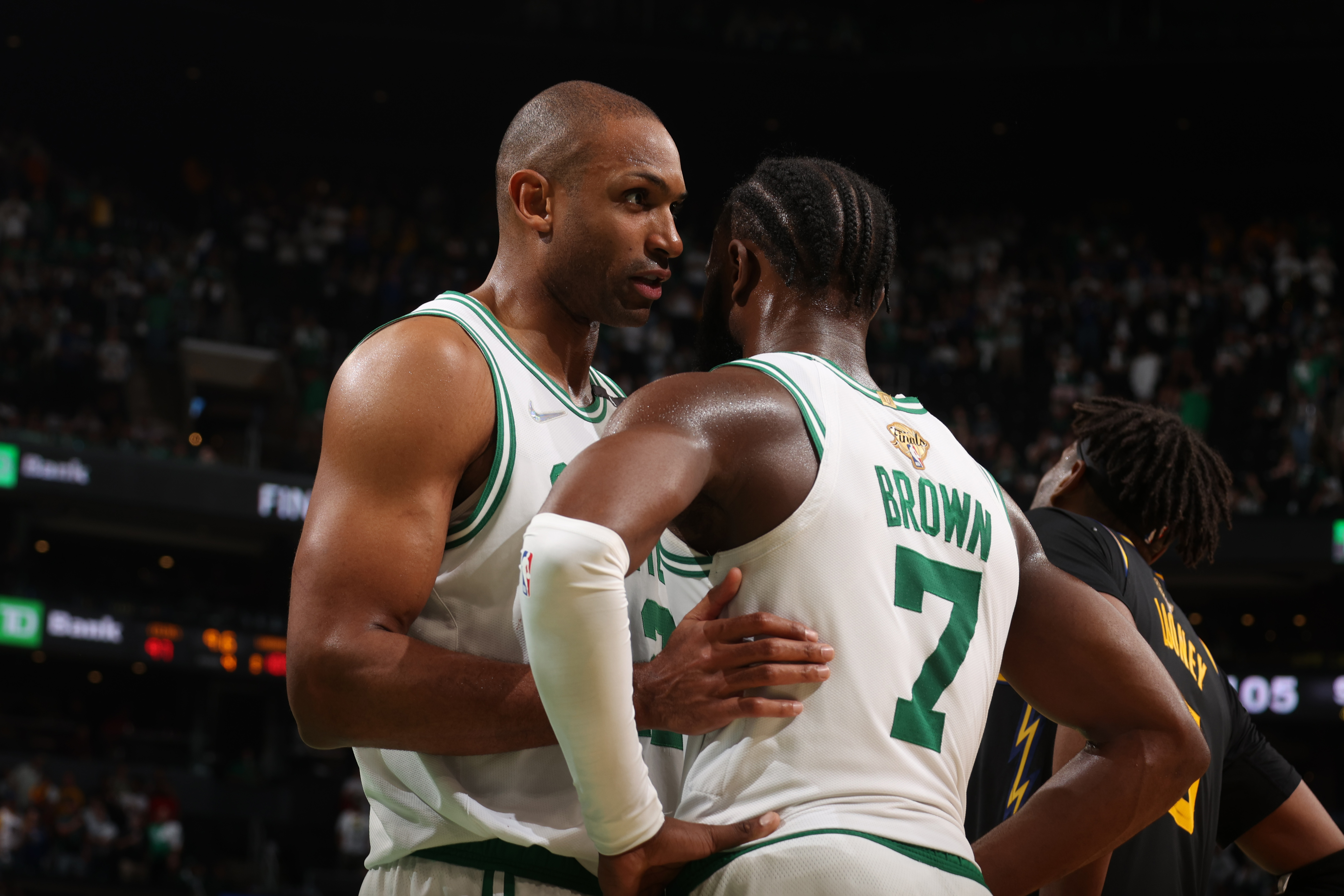
Stats: 11.2 points, 7.4 rebounds, 3.0 assists, 2.2 threes, 57.1 field-goal percentage, 57.9 three-point percentage, 5.3 box plus/minus
Advanced numbers love Al Horford, and for good reason.
Throughout the Finals, he has continued to provide a little bit of everything to the Celtics, including playmaking, three-point shooting and a bit of scoring.
But the Warriors have looked better equipped to attack Horford on defense than any of Boston's previous opponents, which is part of why he has the lowest plus-minus of any Celtics starter.
6. Klay Thompson
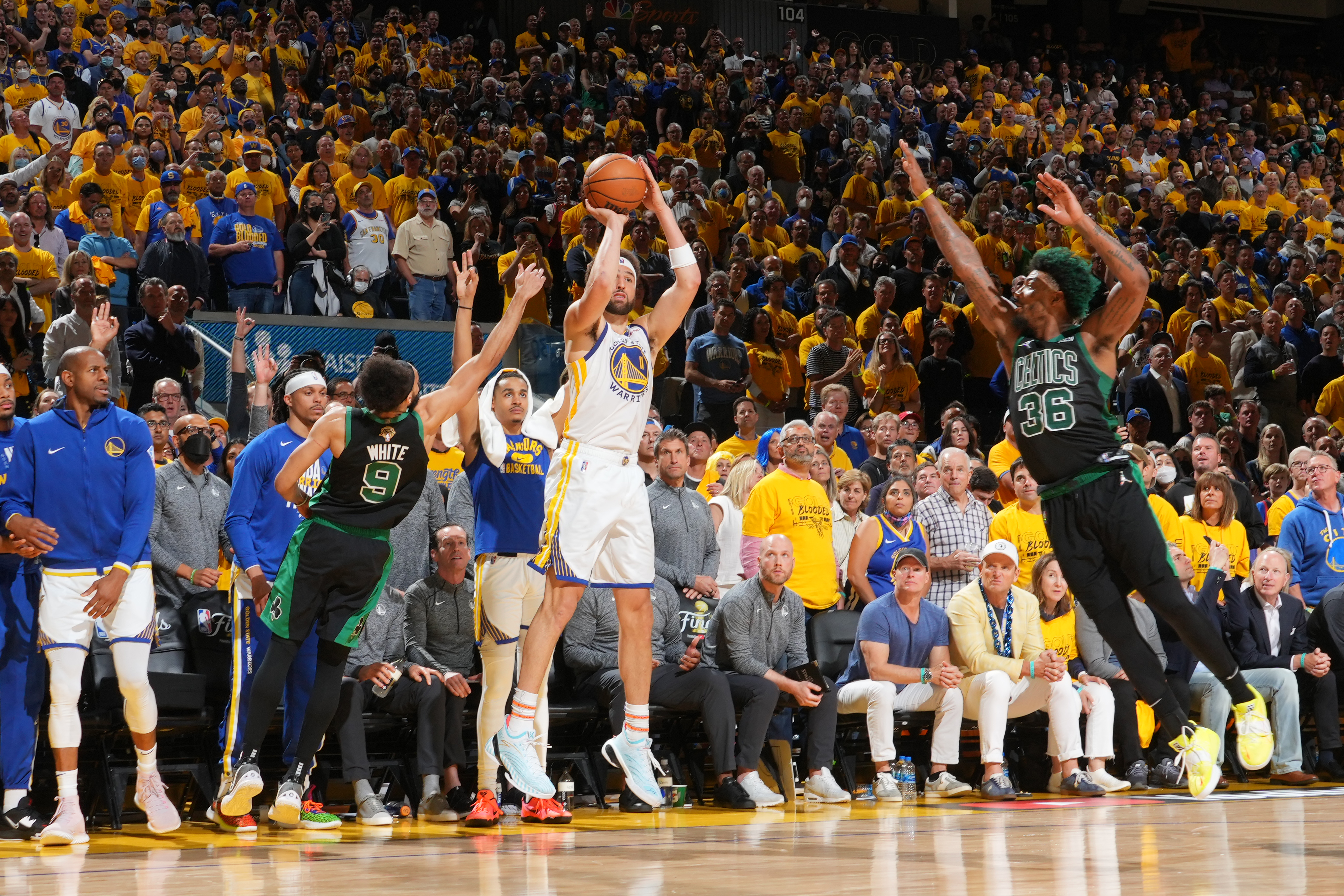
Stats: 18.0 points, 3.6 threes, 2.6 rebounds, 2.0 assists, 1.2 steals, 38.3 field-goal percentage, 36.7 three-point percentage, 1.1 box plus/minus
His overall shooting percentages leave something to be desired, but Klay Thompson has rounded into form over the last three games.
His numbers over that stretch (21.3 points and 4.7 threes while shooting 41.2 percent from deep) are impressive, but it's the defense that really stands out.
Klay has stonewalled a number of drives from Celtics guards and wings. And since the start of Game 3, Golden State is only allowing 103.3 points per 100 possessions when he's on the floor (compared to 111.3 when he's off).
The timely three-point shooting is nice, but it's the defense that really separated Thompson from his peers. If that's back, Boston is going to have a much harder time winning two games in a row.
T4. Kevon Looney
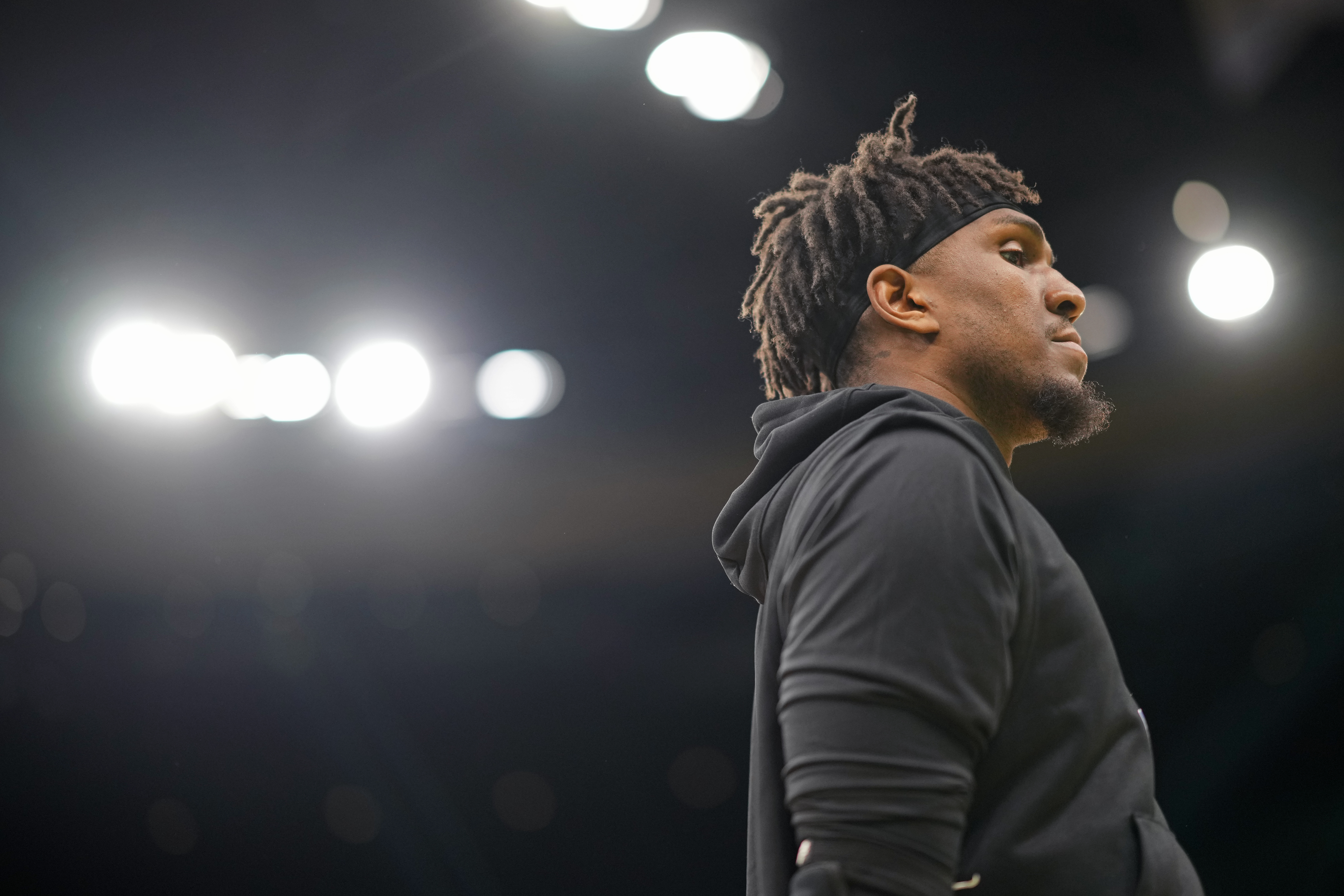
Stats: 6.0 points, 7.6 rebounds, 3.0 assists, 1.0 blocks, 0.8 steals, 70.0 field-goal percentage, 5.5 box plus/minus
He's only playing 21.7 minutes per game, but Kevon Looney's impact on the Finals has been massive.
He's a team-best plus-48 in the series, which is 21 points ahead of second-place Curry. When he's off the floor, the Warriors are minus-37.
That swing isn't just happenstance or the result of playing with the right guys, either. Even after moving to the bench for Games 4 and 5, Golden State continued to win his minutes.
There are a number of reasons for his impact.
For one thing, Boston cannot keep Looney off the boards. He's averaging 12.5 rebounds per 75 possessions, 5.0 of which are offensive. Every possession he's on the floor, if there's a ball available, he's after it.
He's also averaging 5.0 assists per 75 possessions, and that unselfishness is leading to more efficient offense for the Warriors when he's in.
But the biggest reason Looney has been so important is his defense. Beyond the 1.7 blocks per 75 possessions, Looney can defend well enough on the perimeter to allow Golden State to switch a lot of actions outside without sacrificing rim protection altogether.
T4. Andrew Wiggins
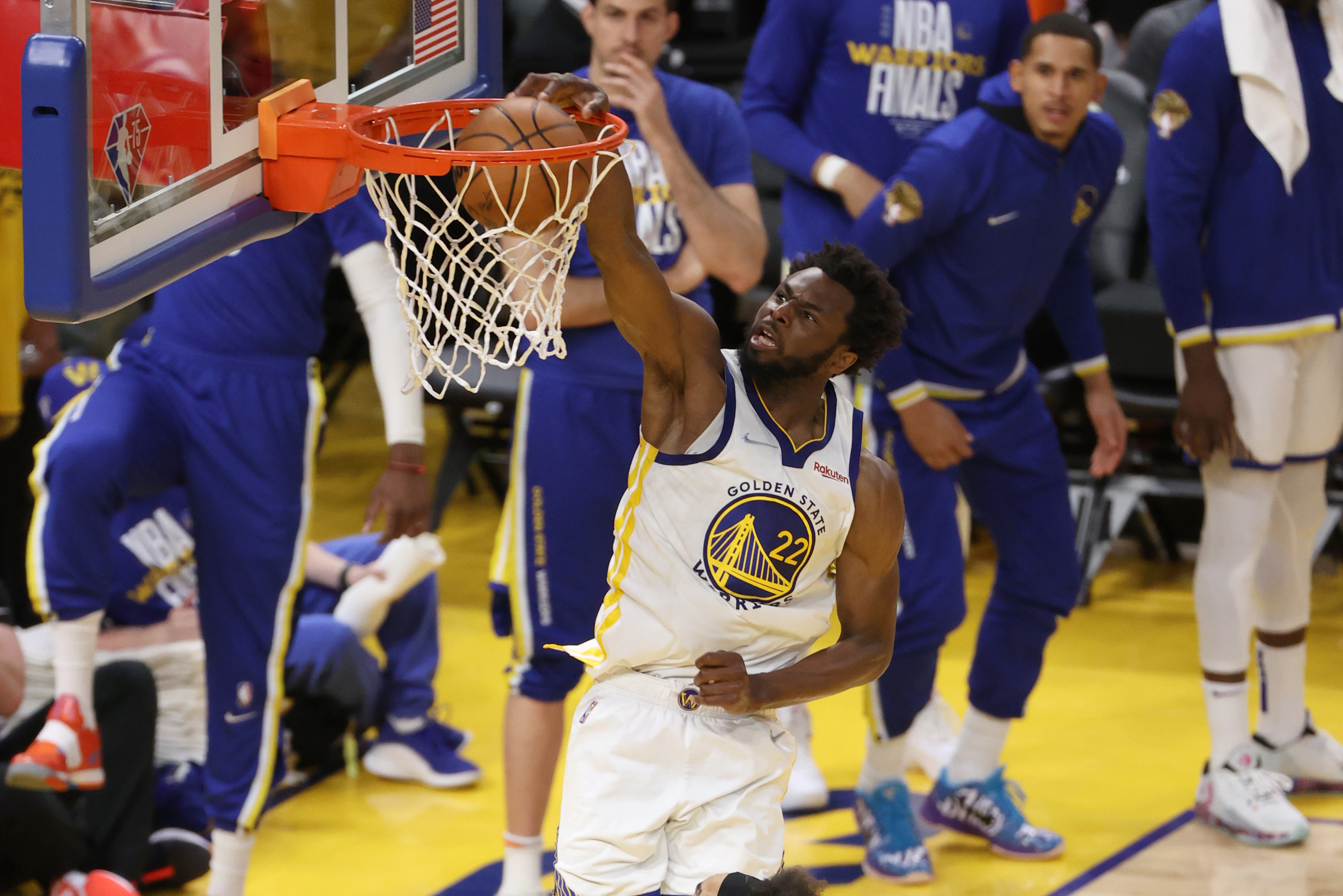
Stats: 18.4 points, 9.4 rebounds, 1.4 threes, 1.2 blocks, 1.2 steals, 45.8 field-goal percentage, 25.0 three-point percentage, 0.7 box plus/minus
Andrew Wiggins soared up this list with his Player of the Game performance in Monday's 104-94 win.
With Curry in a wildly uncharacteristic shooting slump, Wiggins dominated the Celtics inside the arc with 26 points and 13 rebounds (and he'd just come off a 16-rebound performance in Game 4).
But Wiggins' overall impact on the series preceded the last two games, and it's largely come on the defensive end.
He's been Golden State's primary defender on Jayson Tatum all series, and Boston's leading scorer is shooting 18-of-48 (37.5 percent) when Wiggins is the primary defender. And just for good measure, Jaylen Brown is 2-of-10 against Wiggins.
It took him a lot longer than expected to get to this point, and his impact isn't coming in quite the way many expected, but Wiggins' No. 1 overall pick upside is finally coming to fruition.
3. Jayson Tatum
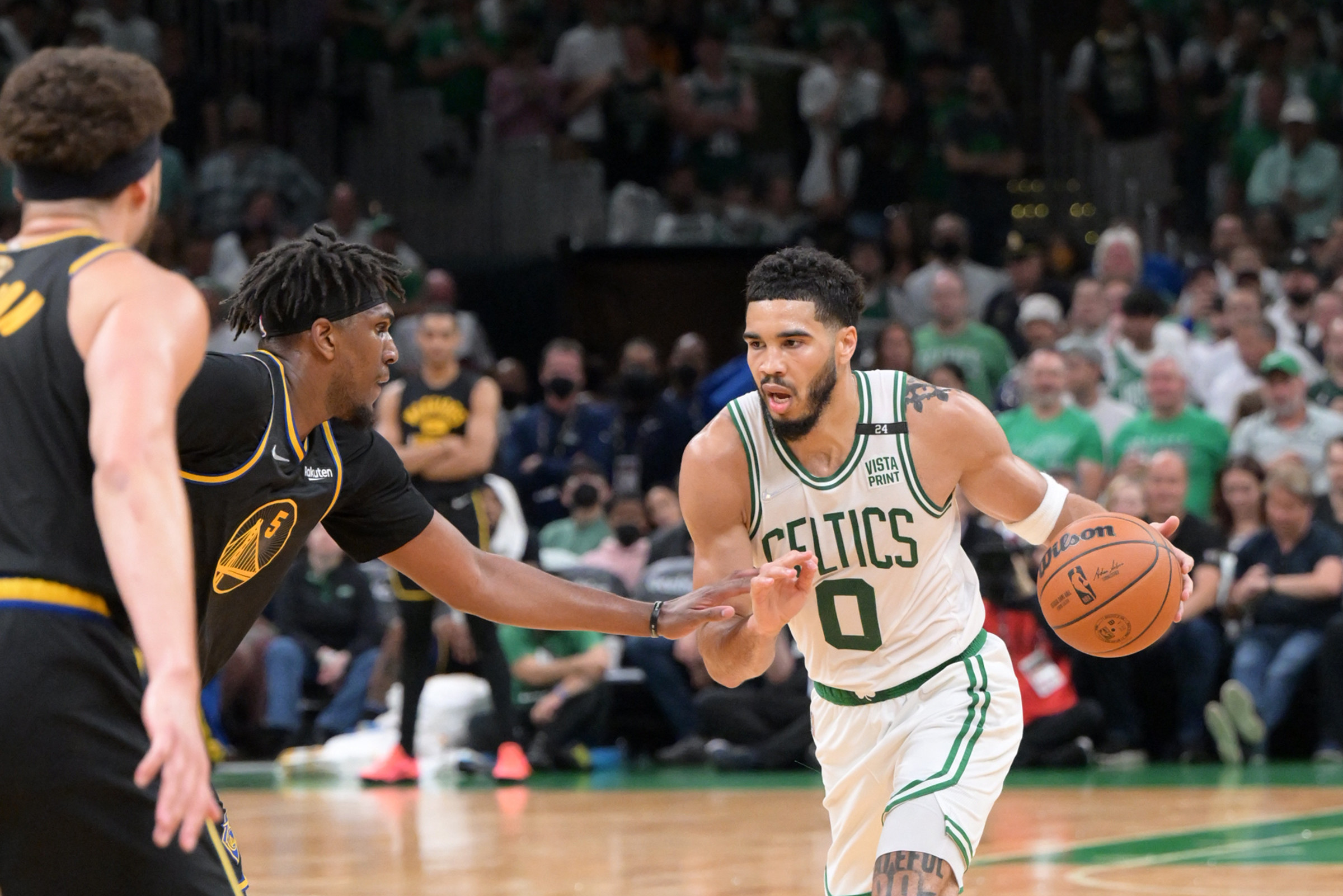
Stats: 23.2 points, 7.6 rebounds, 7.0 assists, 3.8 threes, 37.3 field-goal percentage, 47.5 three-point percentage, 3.0 box plus/minus
Most of the discussion surrounding Jayson Tatum in this series has been negative, and it's not hard to see why.
He's shooting just 30.6 percent on two-point attempts. He's averaging 3.6 turnovers, which has pushed him to a dubious record:
Jayson Tatum now has 95 turnovers this postseason, passing 2018 LeBron James for most in a single postseason. @ESPNStatsInfo
— Kirk Goldsberry (@kirkgoldsberry) June 14, 2022
And he's been almost nonexistent in these games' biggest moments.
There’s seemingly endless terrible stats surrounding the Celtics in this series.
— Jim Murray (@bigjimmurray) June 14, 2022
And now, I present to you, the worst of them all:
Luke Kornet has 5 points in the last 5 minutes of the first 5 games.
Two more than Jayson Tatum.
Tatum is averaging just 3.2 points and shooting 23.8 percent in fourth quarters against the Warriors. If Boston is going to pull off a comeback, he almost certainly has to be better.
There's a reason he's all the way up at No. 3 here, though.
Tatum leads the Celtics in points, rebounds, assists and threes per game while shooting 47.5 percent from deep. And he's doing all that while being hounded by Golden State's best perimeter defender and often buoying an offense that simply isn't performing without him.
In the regular season, the league-average offensive rating was 112.3. When Tatum's off the floor this series, Boston is scoring 102.8 points per 100 possessions.
2. Robert Williams III
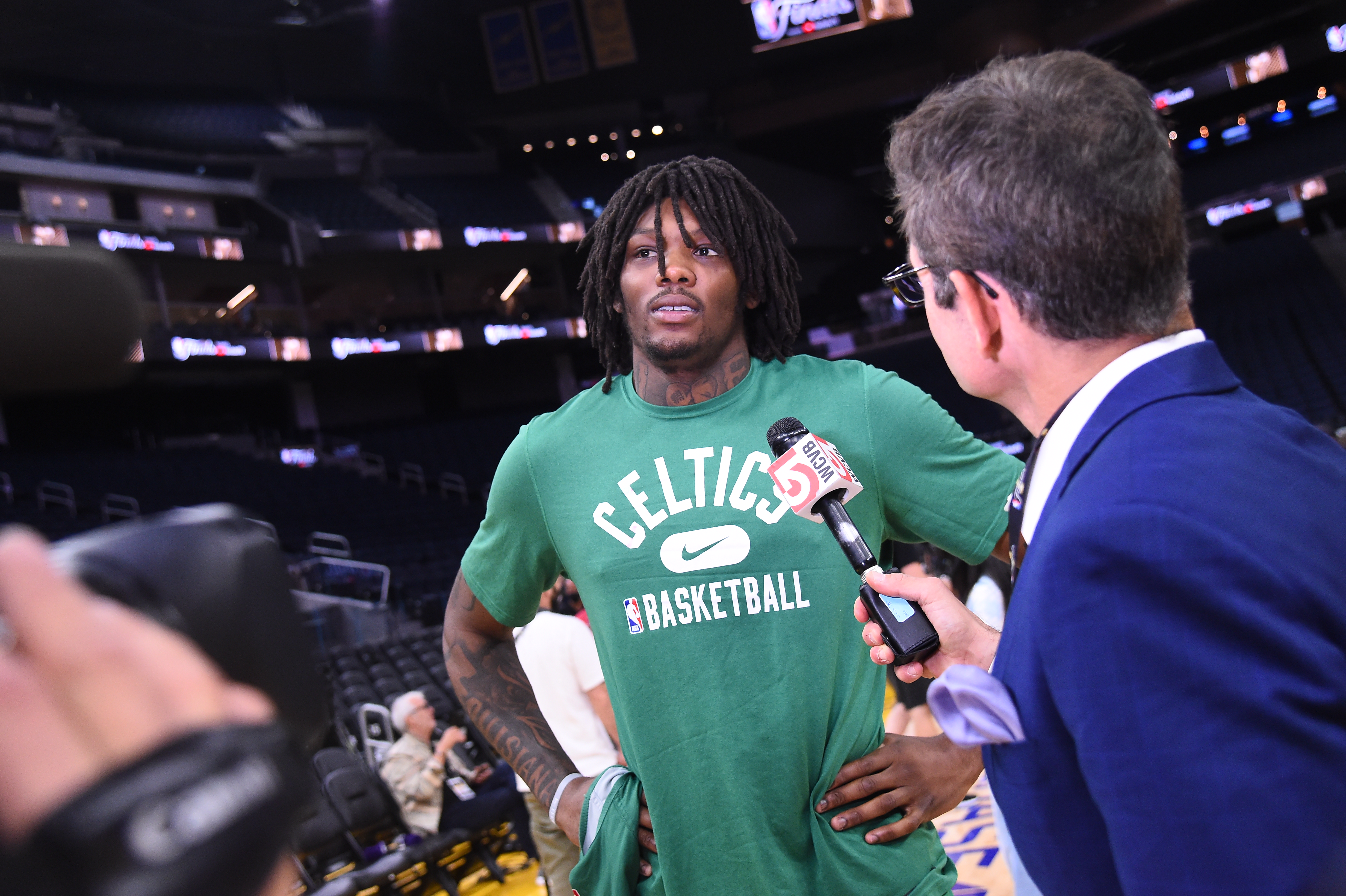
Stats: 7.0 points, 7.6 rebounds, 2.4 blocks, 1.0 steals, 88.9 field-goal percentage, 8.3 box plus/minus
Robert Williams III's impact on this series is similar to Looney's. He isn't playing a ton of minutes or getting a lot of shots, but Boston winning seems to depend an awful lot on him.
Williams is plus-31 for the series (best among Celtics), and Boston is minus-42 when he's off the floor.
He is undoubtedly the best rim protector in the Finals, and the threat of his finishing around the rim is forcing the Warriors defense to collapse when he catches the ball inside.
From here on out, the real key to the series might be who can win the minutes when both Williams and Looney are on the floor. So far, Boston is down 14 in those situations.
1. Stephen Curry
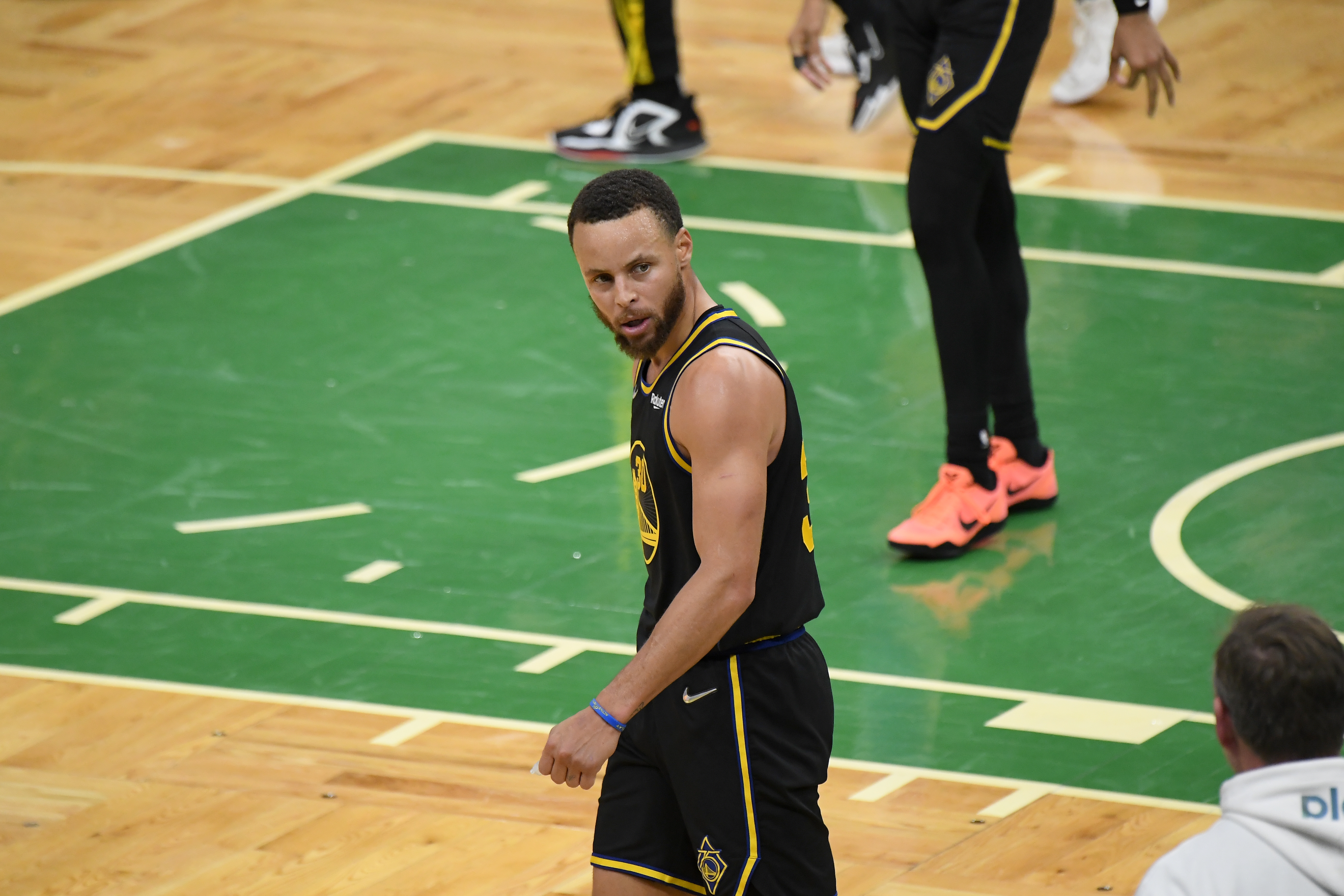
Stats: 30.6 points, 5.6 rebounds, 5.0 threes, 4.6 assists, 1.8 steals, 46.6 field-goal percentage, 41.7 three-point percentage, 9.0 box plus/minus
There's no point in overthinking this: Stephen Curry has unquestionably been the best player in the Finals. And if Golden State hangs on to win the title, it'd take a truly remarkable sequence of events to prevent him from winning his first Finals MVP.
He certainly doesn't need one to secure his legacy, but it also wouldn't hurt.
On top of being the undisputed greatest shooter of all time, Curry is a two-time regular-season MVP. That already puts him on a list that only includes 17 names.
And the only players on that list who also have Finals MVPs are Kareem Abdul-Jabbar, Michael Jordan, Wilt Chamberlain, LeBron James, Larry Bird, Magic Johnson, Moses Malone, Giannis Antetokounmpo and Tim Duncan.
